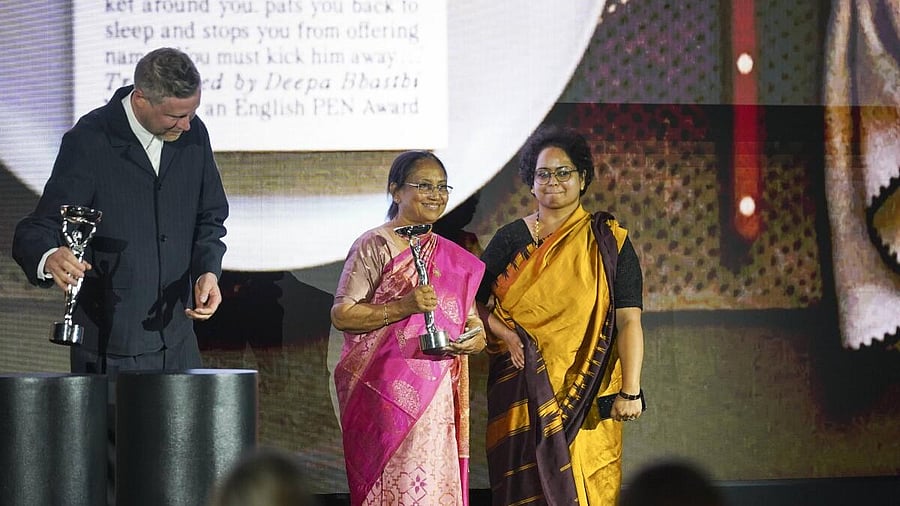
Banu Mushtaq, author of 'Heart Lamp' and (Right) translator Deepa Bhasthi react after winning the International Booker Prize in London
Credit: PTI Photo
In a short essay about the trials and pleasures of translation, published in the prestigious literary journal Paris Review last year, Deepa Bhasthi had dwelt on a Kannada word she particularly loved, Anthe.
“The word “could mean “so it happened,” “that’s how it is,” “apparently,” or “it seems.” The latter comes closest to a direct translation, but is a frustratingly simple choice,” she wrote, firmly concluding that “Anthe will only ever half-heartedly migrate to English.”
Something similar can be said of Madikeri-born and raised Bhasthi, who gave up a thriving career as a journalist and editor, and the hurly-burly of life in Bengaluru, to return to the slow pace and familiar comfort of her hometown in Kodagu some years ago.
Bhasthi, who counts the late Malayalam writer O V Vijayan and her fellow Kodava and novelist Kaveri Nambisan among her favourite authors, traces her love for literature partly to her paternal grandfather, who died six months before she was born. He had left behind a huge collection of books, including a large chunk of classic Russian literature which was to nourish her imagination in later years.
Before she translated the works of Banu Musthaq, which brought her the Booker, Bhasthi had translated, among others, some stories by the early 20th century literary figure Gowramma, better known as Kodagina Gowramma, a pathbreaking writer and early feminist who opened the doors of Kannada literature for many women writers.
Bhasthi had made a name for herself as an arts journalist, and later on, as a columnist and founding editor of a pioneering journal on the politics of food, The Forager.
It was right in the middle of a thriving career that she decided–wisely, as it turned out–to trade the excitement of the art and media worlds for a quiet life in her hometown, dedicated to writing and translation.